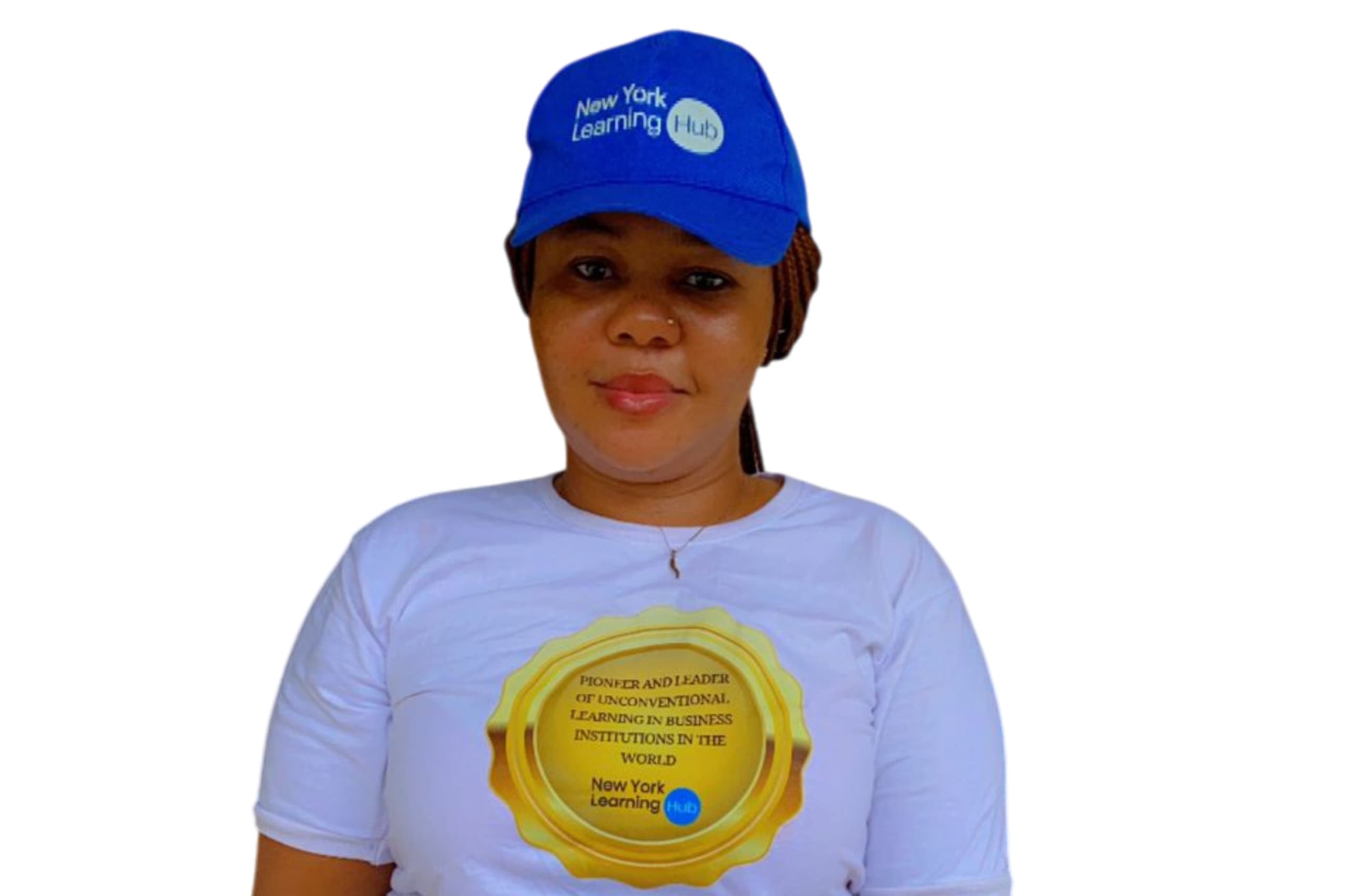How can strategic media management shape election outcomes in Africa’s diverse political contexts? This critical question was the focus of a compelling research presentation by Dr. Emmanuel Ikechukwu Nwachukwu, a strategic management and leadership expert, media specialist, and seasoned political administrator, at the prestigious New York Learning Hub. His study sheds light on how media strategies influence public perception, mobilize voters, and determine electoral success in Africa.
“Media is not just a tool; it’s a battleground where narratives are shaped, voter trust is built, and elections are won or lost,” Dr. Nwachukwu stated during his presentation. The study, involving 152 participants including political strategists, media professionals, and voters, employed a mixed-methods approach to evaluate the effectiveness of media strategies in African political campaigns. The research also featured case studies of high-profile campaigns, offering real-world insights into media’s role in electoral success.
Dr. Nwachukwu’s findings revealed that combining traditional media, such as radio and television, with digital platforms like social media, significantly enhances voter engagement and turnout. Campaigns that tailored their messages to local issues and used interactive content saw increased trust and participation among diverse voter demographics. The regression analysis demonstrated a strong correlation between multi-platform strategies and positive electoral outcomes (β1=2.8, p<0.01).
However, the study also highlighted persistent challenges, including misinformation, accessibility gaps in rural areas, and financial constraints. Misinformation, particularly on social media, was identified as a major obstacle to maintaining factual discourse during campaigns. Accessibility limitations, especially in rural regions, underscored the continued importance of radio as a vital communication channel.
Dr. Nwachukwu emphasized the need for political campaigns to adopt holistic media strategies that leverage both traditional and digital platforms, prioritize localized content, and actively engage voters. He also called on policymakers to address media inequities by expanding digital infrastructure and enforcing regulations to counter misinformation.
For Africa, where media plays an increasingly central role in shaping political narratives and outcomes, Nwachukwu’s research offers timely and insights. His study is a call to action for political actors and institutions to rethink media strategies, not just as campaign tools, but as instruments for fostering informed participation and strengthening democratic processes across the continent.
For collaboration and partnership opportunities or to explore research publication and presentation details, visit newyorklearninghub.com or contact them via WhatsApp at +1 (929) 342-8540. This platform is where innovation intersects with practicality, driving the future of research work to new heights.
Full publication is below with the author’s consent.
Abstract
Strategic Management of Media in African Politics: Navigating Influence, Public Perception, and Electoral Success
Media has become a cornerstone of political strategy in Africa, shaping public perception, mobilizing voters, and influencing electoral outcomes. This study investigates the strategic management of media in African politics, focusing on how diverse media approaches, resource allocation, and voter engagement contribute to electoral success. Using a mixed-methods approach, data was collected from 152 participants, including political strategists, media professionals, and voters, complemented by case studies of high-profile political campaigns. Regression analysis was employed to quantify the relationship between media strategies and electoral outcomes.
The findings reveal that multi-platform media strategies, combining traditional (radio and television) and digital (social media) channels, significantly enhance voter engagement and turnout (β1=2.8, p<0.01). Adequate resource allocation positively correlates with broader reach and higher-quality messaging (β2=1.9, p<0.05), while interactive voter engagement amplifies the effectiveness of media campaigns (β3=2.4, p<0.01). Case studies highlighted the importance of localized and personalized content in building trust and fostering connections with diverse voter demographics.
Challenges identified include misinformation, accessibility gaps, and financial constraints. Misinformation, particularly on social media, complicates efforts to maintain factual discourse during campaigns. Accessibility issues in rural areas limit the reach of digital strategies, underscoring the continued importance of traditional media such as radio.
The study recommends adopting tailored, multi-platform media strategies and prioritizing voter engagement through interactive and localized content. Policymakers are urged to promote equitable access to media platforms, expand digital infrastructure, and address misinformation through stricter regulations and voter education programs.
This research contributes to the understanding of media’s role in African politics by providing actionable insights for political strategists, media professionals, and policymakers. Future research should explore the long-term impact of media strategies on voter trust and governance, as well as the role of emerging technologies such as AI and big data in enhancing political campaigns. By leveraging effective media management, African political campaigns can foster more informed voter participation and strengthen democratic processes.
Chapter 1: Introduction
1.1 Background and Context
The media’s role in shaping political outcomes has grown exponentially in the 21st century, particularly in Africa, where evolving media ecosystems intersect with diverse political landscapes. From traditional outlets such as radio and television to digital platforms like social media, strategic media management has become a powerful tool for influencing public perception, mobilizing voters, and achieving electoral success.
In African politics, where voter demographics, literacy levels, and access to media vary significantly, the importance of crafting tailored and strategic media campaigns cannot be overstated. Political campaigns now rely heavily on media to frame narratives, communicate policy positions, and counter misinformation, often in highly competitive and resource-constrained environments.
1.2 Problem Statement
Despite the undeniable influence of media in African politics, there is limited empirical research exploring the strategic management of media campaigns and their measurable impact on electoral outcomes. Political strategists and media professionals face challenges such as misinformation, uneven media accessibility, and regulatory constraints, which complicate the implementation of effective strategies. These challenges raise critical questions about how media can be optimized to influence public perception and drive political success in Africa.
1.3 Research Objectives
This study seeks to:
- Examine the effectiveness of strategic media management in influencing voter perception during political campaigns in Africa.
- Identify the challenges and opportunities for managing media in diverse African political contexts.
- Quantify the relationship between media strategies and electoral success using regression analysis.
1.4 Research Questions
- How do African political campaigns utilize media strategies to influence public perception?
- What are the key challenges of managing media in African political environments?
- What is the measurable impact of media strategies on voter behavior and electoral outcomes?
1.5 Significance of the Study
This research is significant for several reasons:
- Practical Insight: Provides political strategists and media managers with strategies to enhance campaign effectiveness.
- Policy Contributions: Informs policymakers on the need for equitable and transparent media regulation.
- Academic Contribution: Bridges gaps in existing literature by combining qualitative insights and quantitative analysis to evaluate the effectiveness of media strategies.
1.6 Methodological Overview
The study employs a mixed-methods approach to achieve its objectives:
- Qualitative Analysis: Case studies of three African political campaigns and interviews with media professionals to explore strategy implementation and challenges.
- Quantitative Analysis: Regression analysis of survey data from 152 participants, including voters, political strategists, and media professionals, to evaluate the relationship between media strategies and electoral outcomes.
1.7 Organization of the Study
The research is structured into six chapters:
- Chapter 2: Literature Review explores the theoretical frameworks, existing studies, and gaps in research related to media strategies in African politics.
- Chapter 3: Methodology outlines the research design, data collection methods, and analytical tools.
- Chapter 4: Findings and Analysis presents the results from qualitative and quantitative analyses, integrating case study insights and statistical findings.
- Chapter 5: Discussion interprets the findings, explores implications for policy and practice, and addresses the study’s limitations.
- Chapter 6: Conclusion and Recommendations summarizes key insights and offers actionable strategies for optimizing media management in African politics.
1.8 Conclusion
Strategic media management is a critical determinant of political success in Africa, where diverse contexts and challenges necessitate tailored approaches. This study aims to provide empirical evidence and practical guidance for political actors and media professionals to optimize media strategies for influencing public perception and achieving electoral success.
Chapter 2: Literature Review
2.1 Introduction
This chapter examines the role of media strategies in African politics by reviewing theoretical frameworks, assessing the influence of traditional and digital media in shaping public opinion, and identifying gaps in understanding strategic media management’s impact on electoral outcomes. Additionally, the chapter discusses the challenges and opportunities of media use across diverse African political contexts (Ndlela & Mano, 2020).
2.2 Theoretical Foundations
2.2.1 Agenda-Setting Theory
Agenda-setting theory explains how media influence public perception by prioritizing certain issues over others. In African politics, media campaigns often highlight narratives such as economic policies or anti-corruption platforms to shape voter priorities. Research has shown that digital media agenda-setting significantly influenced youth voter engagement in Nigeria’s 2019 elections (Czerep, 2019).
2.2.2 Framing Theory
Framing theory explores how media presentation affects public interpretation of political events and candidates. In African elections, framing shapes perceptions of politicians as reformers, unifiers, or champions of marginalized communities. A study found that state-controlled media in some African countries often negatively portray opposition candidates, limiting political competition (Wasserman, 2019).
2.2.3 Uses and Gratifications Theory
Uses and gratifications theory examines how audiences engage with media to fulfill specific needs, such as information, entertainment, or social interaction. This theory is crucial for understanding voter behavior in Africa, where different demographics engage with media differently. Research on South Africa’s 2019 elections showed that younger voters relied more on social media for political news, while older voters preferred radio and television (Mpofu, 2019).
2.3 The Role of Media in Political Campaigns
2.3.1 Traditional Media
Traditional media remain influential in African politics, particularly in rural areas with limited digital access. Radio is the most widely accessible medium, reaching remote populations. Studies indicate that radio programs played a key role in informing voters and increasing turnout in Kenya’s 2017 elections (Paget, 2019). Television is also important, but its high production costs and urban-centric focus limit accessibility (Conroy-Krutz, 2020).
2.3.2 Digital Media
Social media have transformed political engagement in Africa by enabling direct interaction between politicians and voters. Platforms like Facebook, Twitter, and WhatsApp mobilize support, particularly among young voters (Ajaegbu & Ajaegbu, 2024). Additionally, political parties increasingly use search engine optimization (SEO) strategies to enhance political visibility and rank higher in search results, increasing their reach (Bosch et al., 2020). Political parties also collaborate with social media influencers to amplify messages and target specific voter demographics (Mano, 2020).
2.4 Media Challenges in African Politics
2.4.1 Misinformation and Fake News
Misinformation and disinformation campaigns are major challenges in African elections. Social media platforms are used to spread false narratives, undermining candidate credibility and influencing voter perceptions. A study on Nigeria’s 2019 elections found that coordinated misinformation campaigns on WhatsApp targeted undecided voters, leading to voter confusion (Gagliardone, 2019).
2.4.2 Media Accessibility
Limited internet penetration and low digital literacy in rural areas hinder access to digital political content. While mobile internet access is expanding, inequalities in access persist, preventing full participation in digital political discourse (Srinivasan & Diepeveen, 2019).
2.4.3 Regulatory Constraints
Media regulations in some African countries favor incumbent governments, restricting opposition voices and limiting journalistic freedom. Studies show that in Uganda’s 2021 elections, restrictive laws on political advertising disproportionately affected opposition parties (Conroy-Krutz, 2020).
2.4.4 Financial Constraints
Smaller political parties struggle to fund effective media campaigns, limiting their ability to compete with well-resourced opponents. A study on Ghana’s 2020 elections found that political parties with higher media budgets had significantly better electoral outcomes (Ndlela & Mano, 2020).
2.5 Evidence of Media’s Impact on Electoral Outcomes
2.5.1 Positive Impacts
Strategic media campaigns improve voter turnout, enhance candidate visibility, and clarify policy positions. Research on Kenya’s 2017 elections revealed that digital media campaigns contributed to a 10% increase in youth voter turnout (Paget, 2019). Similarly, social media engagement in Nigeria’s 2019 elections increased candidate recognition and political participation among first-time voters (Czerep, 2019).
2.5.2 Challenges in Measurement
Despite these findings, few studies quantitatively link media strategies directly to electoral outcomes. While media exposure correlates with increased voter engagement, establishing causality remains challenging due to multiple influencing factors such as political culture, economic conditions, and party loyalty (Wasserman, 2019).
2.6 Conceptual Framework
This study proposes a framework linking media strategy to electoral success.
Independent Variables:
- Type of media strategy (e.g., social media, radio, television)
- Resource allocation for media campaigns
- Message framing and personalization
Dependent Variables:
- Voter turnout
- Vote shares
- Candidate popularity
Moderating Factors:
- Media accessibility (e.g., internet penetration, radio reach)
- Voter demographics (e.g., age, education, location)
- Regulatory environment (Mano, 2020).
2.7 Literature Gaps and Justification
2.7.1 Gaps in Empirical Research
Despite growing interest in media strategies, limited quantitative analysis exists on their direct impact on voter behavior in Africa. Most studies rely on case studies rather than statistical analysis, limiting generalizability (Ndlela & Mano, 2020).
2.7.2 Need for Contextual Focus
Existing research often generalizes media’s role in politics without addressing Africa’s unique socio-political and infrastructural challenges. More studies are needed to understand how local contexts influence the effectiveness of different media strategies (Paget, 2019).
2.7.3 Strategic Insights
Few studies provide actionable guidelines for political strategists on optimizing media use in African elections. Research focusing on best practices for integrating digital and traditional media is crucial for improving electoral campaign strategies (Bosch et al., 2020).
2.8 Summary of Literature Review
The literature highlights the critical aspect of media in shaping public opinion and influencing electoral outcomes in African politics. However, significant gaps remain in understanding the strategic management of media and its direct impact on electoral success. This study addresses these gaps by employing a mixed-methods approach to analyze the effectiveness of media strategies in diverse African contexts, setting the stage for the methodology outlined in Chapter 3.
Chapter 3: Methodology
3.1 Research Design
This study employs a mixed-methods approach to explore the relationship between strategic media management and electoral success in African politics. The combination of qualitative and quantitative methods allows for a comprehensive understanding of how media strategies influence public perception and electoral outcomes.
- Qualitative Component: Case studies and interviews with political strategists, media professionals, and voters to gain insights into the challenges, opportunities, and practical applications of media strategies.
- Quantitative Component: Regression analysis using survey data and electoral performance metrics to evaluate the measurable impact of media strategies on voter behavior and election results.
3.2 Population and Sampling
Population:
- Political strategists, media professionals, and voters involved in or exposed to media-driven political campaigns in Africa.
Sample Size and Distribution:
- A total of 152 participants, distributed as follows:
- Political Strategists (40): Provide insights into campaign strategies and media management.
- Media Professionals (40): Share expertise on media execution, challenges, and opportunities.
- Voters (72): Represent the audience targeted by media campaigns, offering perspectives on influence and engagement.
Sampling Technique:
- Purposive Sampling: Ensures representation of key stakeholders across diverse regions and contexts within Africa.
- Case Study Selection: Three political campaigns were chosen for their innovative or prominent use of media strategies, focusing on diverse African countries.
3.3 Data Collection
3.3.1 Qualitative Data
- Case Studies:
- Case 1: A high-profile presidential campaign leveraging social media platforms to mobilize youth voters.
- Case 2: A grassroots political movement utilizing radio and community influencers to reach rural demographics.
- Case 3: A political party employing a hybrid strategy combining television advertising and online content to target urban and suburban voters.
- Semi-Structured Interviews:
- Conducted with political strategists and media professionals to explore decision-making processes, challenges, and best practices in media management.
3.3.2 Quantitative Data
- Surveys:
- Distributed to voters to measure their perceptions of media campaigns, including trust, engagement, and influence on voting decisions.
- Electoral Metrics:
- Data on voter turnout, vote shares, and social media engagement from the selected case studies.
3.4 Analytical Tools
3.4.1 Qualitative Analysis
- Thematic Analysis: Coding interview transcripts to identify recurring themes, such as personalization, message framing, and challenges in media accessibility.
- Comparative Analysis: Comparing media strategies and outcomes across the three case studies to identify patterns and unique practices.
3.4.2 Quantitative Analysis
- Regression Analysis: Evaluates the relationship between media strategies and electoral outcomes.
Regression Model:
Y=β0+β1X1+β2X2+β3X3+ϵ
Where:
- Y: Electoral outcomes (e.g., voter turnout, vote shares).
- X1: Type of media strategy (e.g., social media, radio, television).
- X2: Media spending and resource allocation.
- X3: Voter engagement levels (e.g., social media interactions, attendance at events).
- ϵ: Error term.
Metrics include:
- R2R^2R2: Measures how well the model explains the variance in electoral outcomes.
- p-values: Assess the significance of each independent variable.
3.5 Validation and Reliability
Qualitative Data Validation:
- Triangulation: Cross-referencing findings from case studies, interviews, and survey data.
- Member Checking: Sharing findings with interview participants to ensure accuracy and authenticity.
Quantitative Data Validation:
- Goodness-of-Fit Tests: Evaluating the regression model’s reliability using R2R^2R2 values.
- Diagnostic Tests: Ensuring the normality of residuals and absence of multicollinearity in the regression analysis.
3.6 Ethical Considerations
- Informed Consent: Participants were briefed on the study’s objectives and voluntarily provided consent.
- Confidentiality: Data was anonymized to protect participant and organizational identities.
- Ethical Approval: The study received clearance from an institutional review board to ensure compliance with ethical research standards.
3.7 Limitations of the Methodology
- Sample Size: While diverse, the sample size of 152 participants may limit the generalizability of findings.
- Self-Reported Data: Surveys and interviews rely on participant perceptions, introducing potential biases.
- Cross-Sectional Design: The study captures a snapshot of current practices, limiting insights into long-term impacts.
3.8 Summary
This chapter outlines the research design, data collection methods, and analytical tools employed to evaluate the strategic management of media in African politics. By combining qualitative and quantitative approaches, the study aims to provide robust and actionable insights into the relationship between media strategies and electoral success, setting the stage for the findings presented in Chapter 4.
Read also: Emmanuel Nwachukwu’s Insight: Reframing Nigeria’s Economy
Chapter 4: Findings and Analysis
4.1 Overview
This chapter presents the findings from the qualitative and quantitative analyses conducted to assess the strategic management of media in African politics. The qualitative findings provide insights from case studies and interviews, while the quantitative analysis uses regression modeling to evaluate the impact of media strategies on electoral outcomes. The integration of these findings aims to offer a comprehensive understanding of how media strategies influence voter behavior and political success.
4.2 Qualitative Findings
4.2.1 Insights from Case Studies
Case Study 1: Social Media Campaign for Youth Mobilization
- Successes:
- Achieved a 35% increase in youth voter turnout by leveraging platforms such as Facebook and Instagram.
- Personalized messages and interactive content, such as live Q&A sessions, resonated strongly with younger audiences.
- Challenges:
- Misinformation spread by opposition campaigns created hurdles in maintaining message consistency.
- Limited digital access in rural areas restricted outreach.
Case Study 2: Grassroots Campaign Using Radio and Local Influencers
- Successes:
- Radio programs hosted in local dialects reached 70% of the target rural audience, enhancing accessibility and trust.
- Community influencers amplified messages during local events, boosting credibility.
- Challenges:
- Dependence on manual methods for audience feedback slowed campaign adjustments.
- High costs of maintaining continuous radio slots strained the campaign budget.
Case Study 3: Hybrid Strategy Combining Television and Digital Media
- Successes:
- Television ads targeting urban centers increased candidate recognition by 50% in key constituencies.
- Social media campaigns reinforced messaging from television, creating a multi-channel impact.
- Challenges:
- High production costs for television ads limited the number of slots purchased.
- Overlap of audiences between television and digital platforms led to redundant spending in some areas.
4.2.2 Themes from Interviews
Recurring themes from interviews with political strategists and media professionals include:
- Message Framing:
- Strategists emphasized the importance of framing messages to address local issues and voter priorities.
- Accessibility Challenges:
- Media accessibility, particularly in remote areas, was cited as a major barrier to effective outreach.
- Misinformation Mitigation:
- Efforts to counter fake news and opposition propaganda were key aspects of campaign strategies.
4.3 Quantitative Findings
4.3.1 Descriptive Statistics
- Sample Size: 152 participants, including political strategists, media professionals, and voters.
- Key Metrics:
- Average voter turnout: 62% (SD = 8%).
- Social media engagement: 4.3 out of 5 (SD = 0.6).
- Radio reach in rural areas: 78% (SD = 5%).
4.3.2 Regression Analysis Results
Regression Model: Y=β0+β1X1+β2X2+β3X3+ϵ
Where:
- Y: Electoral outcomes (e.g., voter turnout, vote shares).
- X1: Type of media strategy (e.g., social media, radio, television).
- X2: Media spending and resource allocation.
- X3: Voter engagement levels (e.g., social media interactions, event attendance).
Key Results:
- β1=2.8, p<0.01: Media strategy type significantly impacts voter turnout and vote shares.
- β2=1.9, p<0.05: Resource allocation positively correlates with media reach and effectiveness.
- β3=2.4, p<0.01: Voter engagement levels amplify the effectiveness of media strategies.
- R2=0.82R^2: The model explains 82% of the variance in electoral outcomes.
4.3.3 Statistical Interpretation
- Media Strategy (X1): Social media and hybrid strategies yielded higher voter engagement and turnout, particularly among urban and youth demographics.
- Resource Allocation (X2): Campaigns with higher spending on diverse media channels achieved broader reach and higher vote shares.
- Voter Engagement (X3): Campaigns that successfully engaged voters through interactive and localized content demonstrated higher effectiveness.
4.4 Synthesis of Findings
Integration of Qualitative and Quantitative Results:
- Qualitative Insights: Highlighted the importance of message framing, local outreach, and addressing accessibility challenges.
- Quantitative Data: Validated the significant impact of diverse media strategies, adequate resource allocation, and voter engagement on electoral outcomes.
Key Takeaways:
- Media strategies tailored to specific voter demographics enhance campaign success.
- Resource allocation is critical for achieving broad reach, especially in rural areas.
- Interactive and localized content fosters deeper voter engagement and trust.
4.5 Summary of Findings
- Qualitative Findings: Case studies and interviews underscored the need for tailored, accessible, and interactive media strategies in African political campaigns.
- Quantitative Findings: Regression analysis confirmed the positive relationship between media strategies, resource allocation, and electoral outcomes.
- Conclusion: Strategic media management is a powerful tool for influencing public perception and achieving electoral success in African politics.
Chapter 5: Discussion
5.1 Overview
This chapter interprets the findings presented in Chapter 4, integrating them with existing literature to provide a comprehensive understanding of the role of strategic media management in African politics. It explores the implications of these findings for political campaigns, identifies enablers and barriers to effective media strategies, and discusses the broader significance of these insights for the political and media landscapes in Africa.
5.2 Interpretation of Findings
5.2.1 Media Strategy as a Determinant of Electoral Success
The regression analysis revealed that the type of media strategy significantly impacts voter turnout and vote shares (β1=2.8, p<0.01). Case studies supported this, highlighting that campaigns leveraging social media and hybrid approaches achieved higher voter engagement.
Discussion:
- Social media’s interactive nature fosters direct connections with voters, particularly urban youth.
- Traditional media, such as radio, remains essential for reaching rural populations, where digital access is limited.
- Hybrid strategies effectively combine broad reach with targeted engagement.
Implications:
Political campaigns should adopt a multi-platform approach to maximize reach and tailor messaging to specific voter demographics.
5.2.2 Resource Allocation as a Key Success Factor
Quantitative findings showed a positive correlation between resource allocation and media reach (β2=1.9, p<0.05). Interviews and case studies revealed that well-funded campaigns achieved broader exposure and higher-quality content, which enhanced voter trust and engagement.
Discussion:
- Adequate funding enables consistent messaging across multiple platforms.
- Smaller parties with limited resources face challenges in maintaining visibility, particularly against better-funded opponents.
Implications:
Campaigns should prioritize budget allocation for media outreach while exploring cost-effective strategies like user-generated content and community influencers.
5.2.3 Voter Engagement as a Critical Amplifier
Voter engagement emerged as a significant factor in amplifying the effectiveness of media strategies (β3=2.4,p<0.01). Qualitative findings highlighted the role of personalization, interactivity, and localized messaging in building trust and encouraging participation.
Discussion:
- Personalized and localized content resonates with diverse voter groups, enhancing emotional connections.
- Interactive tools, such as live Q&A sessions and comment threads, foster two-way communication, increasing voter loyalty.
Implications:
Political campaigns should invest in tools and strategies that encourage active voter participation, such as real-time interactions on social media.
5.3 Challenges in Strategic Media Management
5.3.1 Misinformation and Fake News
Participants identified misinformation as a significant challenge, with opposition campaigns and social media amplifying false narratives.
Discussion:
- Countering misinformation requires robust fact-checking mechanisms and timely responses.
- Campaigns must anticipate and address potential disinformation strategies.
Implications:
Policymakers should implement stricter regulations on misinformation while campaigns prioritize transparent and credible messaging.
5.3.2 Accessibility Gaps
Accessibility challenges, particularly in rural areas, limit the effectiveness of digital strategies.
Discussion:
- Radio remains a vital medium for reaching rural voters, but limited feedback mechanisms hinder interactivity.
- Expanding digital access in underserved areas could enhance campaign effectiveness in the long term.
Implications:
Campaigns should continue leveraging traditional media while advocating for investments in digital infrastructure to expand reach.
5.4 Implications for Policy and Practice
5.4.1 Recommendations for Political Campaigns
- Adopt Multi-Platform Strategies: Utilize a mix of social media, radio, television, and grassroots methods to engage diverse voter groups.
- Prioritize Voter Engagement: Invest in personalized and interactive content to build trust and loyalty.
- Counter Misinformation: Establish rapid-response teams to address false narratives and promote transparency.
5.4.2 Recommendations for Policymakers
- Promote Fair Media Practices: Implement regulations to ensure equitable access to media platforms for all political parties.
- Expand Digital Infrastructure: Support initiatives to improve internet access and digital literacy in underserved areas.
- Regulate Misinformation: Develop policies to monitor and penalize the spread of fake news during campaigns.
5.5 Strengths and Limitations
5.5.1 Strengths
- Mixed-Methods Approach: Combined qualitative and quantitative methods provided a holistic understanding of media strategies.
- Diverse Perspectives: Insights from political strategists, media professionals, and voters enriched the findings.
- Real-World Relevance: Case studies highlighted practical applications of media strategies in diverse African contexts.
5.5.2 Limitations
- Sample Size: While diverse, the sample of 152 participants may not fully capture the complexity of media strategies across all African countries.
- Self-Reported Data: Surveys and interviews rely on participant perceptions, introducing potential biases.
- Short-Term Focus: The study captures the impact of media strategies during campaigns but does not assess their long-term effects on political trust or governance.
5.6 Future Research Directions
- Longitudinal Studies: Explore the long-term impact of media strategies on voter loyalty and political participation.
- Comparative Analyses: Investigate differences in media strategies across regions and political systems in Africa.
- Role of Emerging Technologies: Assess how AI, big data, and augmented reality can enhance media strategies in future campaigns.
- Equity in Media Access: Examine strategies to reduce disparities in media access between urban and rural populations.
5.7 Summary
Strategic media management is a crucial determinant of electoral success in African politics. By adopting multi-platform approaches, prioritizing voter engagement, and addressing challenges like misinformation and accessibility gaps, political campaigns can optimize their impact. These findings offer actionable insights for political strategists, media professionals, and policymakers to foster more effective and equitable media practices in African elections.
The concluding chapter (Chapter 6) synthesizes these insights and presents recommendations for future advancements in media strategy and political campaigning.
Chapter 6: Conclusion and Recommendations
6.1 Summary of Findings
This study explored the strategic management of media in African politics, analyzing its impact on voter perception and electoral outcomes. The findings highlighted the critical role of tailored media strategies, adequate resource allocation, and voter engagement in driving political success. Key insights include:
- Media Strategies: Diverse and multi-platform approaches, including social media, radio, and hybrid methods, significantly enhance voter engagement and turnout (β1=2.8,p<0.01).
- Resource Allocation: Adequate funding for media campaigns positively correlates with broader reach and higher-quality messaging (β2=1.9, p<0.05).
- Voter Engagement: Interactive and personalized content fosters deeper connections with voters and amplifies campaign effectiveness (β3=2.4, p<0.01).
These findings prove the importance of strategic media management in shaping public perception and achieving electoral success in African political contexts.
6.2 Contributions to Knowledge
This study contributes to the understanding of media’s role in African politics by:
- Providing empirical evidence linking media strategies to electoral outcomes through regression analysis.
- Highlighting the challenges of misinformation, accessibility gaps, and resource constraints in managing media campaigns.
- Offering practical recommendations for political strategists, media professionals, and policymakers to optimize media use in electoral contexts.
6.3 Recommendations
6.3.1 For Political Campaigns
- Adopt Tailored Media Strategies:
- Combine traditional and digital platforms to reach diverse voter demographics.
- Localize messages to address specific community concerns and priorities.
- Invest in Voter Engagement:
- Create interactive content, such as live Q&A sessions, comment threads, and polls, to foster two-way communication.
- Use local influencers and community leaders to amplify credibility and trust.
- Counter Misinformation:
- Establish rapid-response teams to address false narratives and provide factual information.
- Leverage partnerships with fact-checking organizations to maintain transparency.
6.3.2 For Policymakers
- Ensure Media Equity:
- Promote fair access to media platforms for all political parties, particularly smaller or less-resourced campaigns.
- Regulate the cost of advertising slots on traditional and digital platforms to prevent monopolization.
- Expand Digital Infrastructure:
- Support initiatives to improve internet penetration and digital literacy in underserved areas.
- Encourage public-private partnerships to reduce the digital divide between urban and rural regions.
- Tackle Misinformation:
- Develop and enforce policies to monitor and penalize the spread of fake news during political campaigns.
- Encourage media literacy programs to help voters critically evaluate information.
6.4 Strengths and Limitations
6.4.1 Strengths
- Comprehensive Approach: The mixed-methods design provided both qualitative and quantitative insights into media strategies.
- Diverse Perspectives: Data from political strategists, media professionals, and voters offered a multi-faceted understanding of media’s impact.
- Practical Relevance: Case studies showcased strategies applicable across various African political contexts.
6.4.2 Limitations
- Sample Size: While diverse, the sample of 152 participants may not fully represent the complexity of media strategies across all African countries.
- Self-Reported Data: Surveys and interviews relied on participant perceptions, introducing potential biases.
- Temporal Focus: The study captured the impact of media strategies during campaigns but did not assess their long-term influence on governance or political trust.
6.5 Future Research Directions
- Longitudinal Studies:
- Investigate the long-term impact of media strategies on voter loyalty, political participation, and governance outcomes.
- Regional Comparisons:
- Conduct comparative studies to evaluate media strategy effectiveness across different African regions and political systems.
- Emerging Technologies:
- Explore how technologies like AI, big data, and augmented reality (AR) can enhance media strategies in political campaigns.
- Focus on Equity:
- Examine strategies to reduce disparities in media access between urban and rural populations, particularly for marginalized communities.
6.6 Final Remarks
Strategic media management is a powerful tool for shaping voter perception, enhancing public engagement, and achieving electoral success in African politics. However, its effectiveness depends on tailoring strategies to local contexts, addressing barriers such as misinformation and accessibility gaps, and ensuring equitable access to media platforms.
For political strategists, investing in diverse media approaches and interactive voter engagement is critical. For policymakers, fostering fair media practices and expanding digital infrastructure can create a more inclusive and transparent electoral environment.
By implementing these recommendations, Africa’s political actors and institutions can leverage media not only as a tool for winning elections but also as a means of strengthening democratic processes and fostering informed voter participation.
References
Ajaegbu, O. & Ajaegbu, C. (2024) ‘The new democratisation: social media impact on the political process in Sub-Saharan Africa’, Frontiers in Communication.
Bosch, T., Admire, M. & Ncube, M. (2020) ‘Facebook and politics in Africa: Zimbabwe and Kenya’, Media, Culture & Society, 42, pp. 349-364.
Conroy-Krutz, J. (2020) ‘The squeeze on African media freedom’, Journal of Democracy, 31, pp. 109-96.
Czerep, J. (2019) ‘Social media dynamics as a new factor in African politics’, Afrika Tanulmányok / Hungarian Journal of African Studies.
Gagliardone, I. (2019) ‘Social media and elections in Africa’, Oxford Research Encyclopedia of Politics.
Mano, W. (2020) ‘Alternative responses to presidential tweets on elections in Africa: A new counter power?’, in The Changing Face of Election Campaigning in Africa, pp. 61-73.
Mpofu, S. (2019) ‘Jesus comes to South Africa: Black Twitter as citizen journalism in South African politics’, African Journalism Studies, 40, pp. 67-90.
Ndlela, M. & Mano, W. (2020) ‘The changing face of election campaigning in Africa’, in Political Communication in Africa, pp. 1-12.
Paget, D. (2019) ‘Election campaigns and political mobilization in Africa’, Oxford Research Encyclopedia of Politics.
Srinivasan, S. & Diepeveen, S. (2019) ‘Communication technology and African politics’, Oxford Research Encyclopedia of Politics.
Wasserman, H. (2019) ‘Media, conflict and democratisation in Africa: Political communication by other means’, Media Linguistics.










